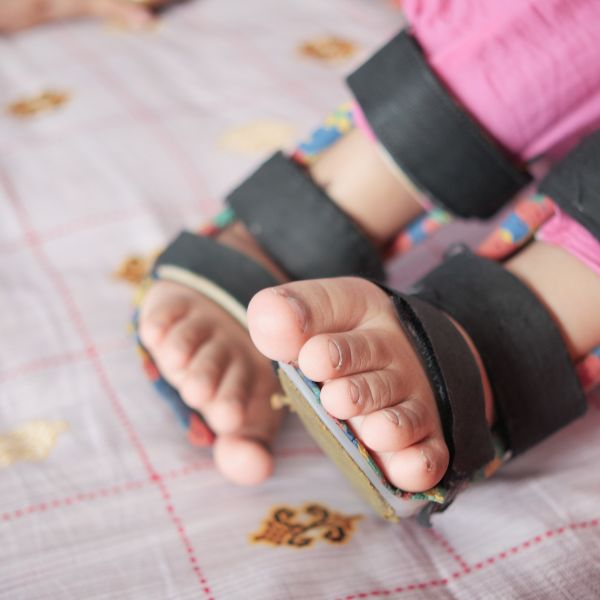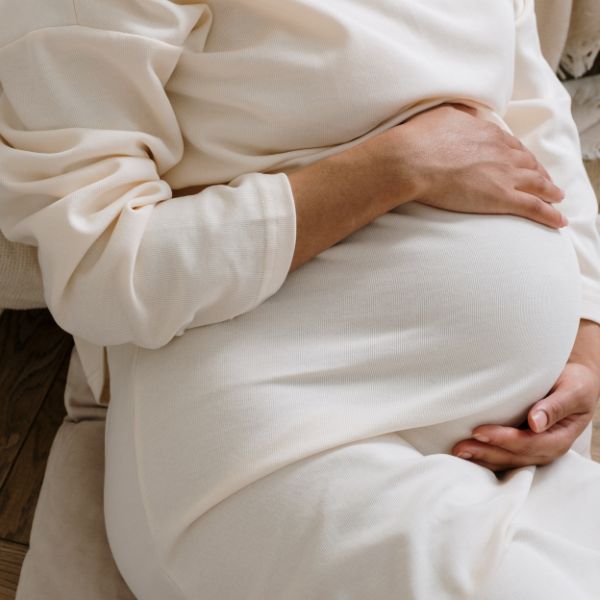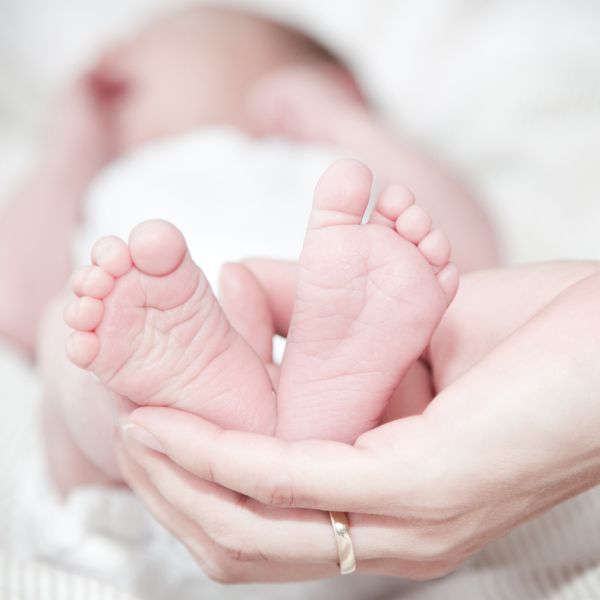Our Caesarean Section Claims specialists can help you or your loved ones through the process of claiming compensation.
C-Section Negligence Compensation Claims.
Having a c-section can be a traumatic experience in itself, but when things go wrong and you or your child is harmed, it can be difficult to trust medical professionals again.
For many families, a C-section brings relief, reassurance, and a joyful end to what may have been a challenging pregnancy. However, when something goes wrong, whether through delayed decisions, surgical mistakes, or inadequate aftercare, the consequences can be devastating for both mother and child.
At Lanyon Bowdler, we understand just how deeply these experiences can affect you. You may feel let down, confused about what happened, and unsure about whether anything could have been done differently. That’s where we can help.
Our dedicated team of C-Section Negligence Solicitors are here to support you with professionalism and compassion. We will take the time to listen to your concerns, answer your questions clearly, and explain your options in a way that feels manageable. If there’s a case to be made, we’ll help you pursue it with care, integrity, and a deep commitment to securing the best possible outcome for you and your family.
Whether you are seeking accountability, support with long-term care, or simply clarity about what went wrong, we’re here to walk alongside you throughout the process. We offer a free, no-obligation initial consultation, and will always handle your enquiry with the sensitivity and respect it deserves.
Meet the team.
Case study.
 Case Study
Case Study

Can I make a C-Section Negligence Claim?
If you or your baby have suffered injury because of a C-Section, you are likely eligible to make a claim for compensation.
As is the case with caesarean section claims, there are a few basic facts that must be proven in order to build a strong case.
- You have suffered a physical or psychological injury following a C Section
- The injury was caused by the negligence of a third party, such as doctors, nurses or other medical staff.
- The person or entity whose negligence caused your injury owed you a duty of care.
If all three of these principles can be proven, then we can make a strong case to the responsible party that you should be compensated for your injury. Contact Lanyon Bowdler today to find out how our C-Section Negligence Solicitors have helped mothers and families across the UK to receive the payout they deserved for their traumatic experiences.
Our C-section Expertise
Our specialist C-section Negligence Solicitors act for clients across the country who have suffered because of negligence related to their C-section. This can affect both mothers and babies, and can have devastating, long-term effects. Contact us today to find out if you have a valid C-section Negligence Claim.
We are proud members of the Law Society’s Clinical Negligence Panel and have solicitors accredited by AvMA (Action Against Medical Accidents), two of the most respected accreditations for medical negligence work in the UK. These accreditations reflect our commitment to quality, integrity, and delivering outstanding client care, particularly in sensitive claims.
We are proud to consistently be recognised by both Legal 500 and Chambers UK, plus we won the Clinical Negligence Team of the Year title in 2018, and were finalists in 2022, at the Eclipse Proclaim Personal Injury Awards in Manchester, beating off strong competition from across the country.
Our medical negligence team is made up of highly qualified and experienced solicitors who specialise in birth injury cases, so we are well-equipped to handle a wide variety of medical negligence cases.
We regularly work with independent medical experts to thoroughly investigate your treatment, ensuring no stone is left unturned in getting the answers you deserve.
Please get in touch with us today to find out what we can do for you.
Your Caesarean Section Negligence questions answered
As with any form of surgery, a C-section carries some risks. The surgeon and medical staff, looking after the mother and baby during the procedure, will be highly trained and experienced in handling a variety of different issues that could potentially present during the surgery. Yet, as meticulous as the medical staff are, a mother may still experience problems post-surgery which require immediate medical attention, including:
- Severe pain in and around the wound
- Severe vaginal bleeding
- Bleeding or pain when urinating, or bladder leakage
- Changes in the colour or shape of the wound
- Increasing redness or swelling of the wound
- Pus or discharge from the wound along with a potent smell
- Pain or swelling in the lower legs
- A persistent cough or shortness of breath
All types of surgery carry potential risks, and caesarean sections are no different. The surgeon performing the procedure will have undergone years of studying and training, and in the vast majority of cases the surgery will go off without a hitch. However, complications and injuries can happen due to a number of reasons, including:
- Post-surgery infection could become more serious or even life-threatening if treatment is delayed.
- Excessive bleeding could occur, requiring a blood transfusion or additional corrective surgery.
- Postpartum endometritis, which is a bacterial infection of the womb lining.
- Deep vein thrombosis (DVT) which is a blood clot in the leg causing pain and swelling, and could travel to the lungs causing a life-threatening pulmonary embolism.
- The mother may experience internal injuries due to surgical error, such as a perforated bladder or bowel, which can lead to incontinence.
- Sometimes medical professionals fail to properly suture the wound, increasing the risk of it reopening during a future pregnancy.
- Surgical error could cause nerve damage which leads to numbness in part of the mother’s body.
- An error could be made when the anaesthetic is being administered.
- Surgical error could mean the baby experiences lacerations, fractures, nerve damage, or brachial plexus damage during the procedure, which can lead to Erb’s palsy.
- A delay in carrying out a C-section can lead to the baby suffering oxygen starvation, which can cause conditions such as cerebral palsy.
- A delayed caesarean could also mean the baby’s head becomes stuck in the birth canal and is put under excessive pressure, resulting in brain damage.
Some of these things, such as post-surgery infections, can happen in even the most routine and straightforward cases, and can be easily treated with antibiotics. However, some of these problems can occur or be made worse due to clinical negligence, potentially leading to chronic or life-long problems, or in some cases even proving fatal to mother or baby.
If you have experienced any problems as a direct result of your caesarean section and you feel that you have received negligent care from the hospital, you may have a case for claiming compensation and our team of medical negligence solicitors will be happy to advise you.
C-Section injuries to babies can have very serious effects, often resulting in long-term conditions and disabilities. It is crucial that the medical staff is experienced and able to spot the signs of complications to avoid injuries to the baby during a C-Section. Some of the common injuries babies can suffer during a C-Section include:
- Cuts sustained during the incision, and consequent scarring.
- Brain injuries derived from lack or deprivation of oxygen to the baby.
- Premature birth.
Many cases of negligence during a C-Section, or occurring because of the delay in intervention, can lead to conditions such as cerebral palsy. In these cases, it is vital to hold those responsible accountable and do what you can to ensure the best possible care for the child moving forward. A C-Section Negligence Claim can help you cover the costs of specialist medical care and rehabilitation.
There are a number of factors which could mean that a caesarean section is a safer option than a vaginal birth, including:
- The baby is in breech position (bottom down instead of head down).
- The baby is back-to-back with the mother which can make vaginal birth difficult.
- Pelvic disproportion, i.e. the mother’s pelvis is too narrow for a safe delivery.
- A prolapsed umbilical cord e.g. slipped out of position or squashed.
- Placental abruption, in which the placenta detaches from the wall of the uterus
- Placenta praevia, which is where the uterus is blocked by the membrane, thus obstructing birth.
- Foetal distress e.g. heart rate slows and takes longer than expected to recover after contractions.
- Assisted delivery failure i.e. when forceps or ventouse have been unsuccessful
- Uterine rupture, which is when the uterus opens, usually along the scar from a previous C-section.
If the caesarean section is pre-planned, the mother will be invited to the hospital around a week before the due date for a preoperative appointment. This appointment provides the parents with the opportunity to ask any questions they may have about the procedure. The doctor will also request a blood test to check for anaemia.
The doctor will discuss the variety of medication available to the mother before, during, and after the procedure, such as antibiotics, anti-sickness medication, pain relief, and medication that reduces the amount of acid in the stomach. The mother will also be asked to sign a consent form and advised to stop eating and drinking several hours before the procedure.
If the caesarean is to take place in an emergency situation, the preoperative process will move quickly. The mother will be informed of all associated risks and asked to sign a consent form, and immediately after she will be prepped for surgery. This will usually involve compression stockings being put onto her legs, before she is wheeled through to theatre to have the spinal block. In an emergency situation, it can be as little as 15 minutes between signing the consent form and being on the operating table, which can feel very overwhelming and traumatising for the mother.
Once the C-section surgery is complete, the mother is usually moved to a recovery ward or private room, where she can rest and recover from the effects of the anaesthetic, before being offered pain relief for the post-surgery discomfort she may be experiencing. Surgery typically carries the risk of blood clots, so the mother will most likely be given blood-thinning medication and compression stockings to help reduce the risk.
As soon as the mother feels hungry again after the surgery, she should be offered food and drink, and she should also be offered help with breastfeeding if she has chosen to feed her baby in that way, as it can be difficult to establish breastfeeding after the physical trauma of surgery. Mothers are typically encouraged to get out of bed and start moving about within the first 24 hours of their C-section as this can help with long-term recovery, although doctors also advise not to do too much too soon.
Some mothers will spend around three to four days in hospital after their C-section so that the midwives and doctors can make sure they are recovering well, and that mother and baby are both healthy. For others this will be less. Before leaving the hospital, a midwife will advise the mother how to care for their wound in order to prevent infection, including keeping the wound clean and dry, and avoiding tight clothes that will rub on the wound. If the wound was closed with non-dissolvable stitches, these should be removed by a midwife around seven days after the surgery.
Yes; as with most medical negligence cases, the time limit for bringing a C Section Compensation Claim is three years from the date of the injury, or three years from the date that you were first aware of the injury. For example, if the injury only came to light several months or years on from the C-section, this is when the three-year period would begin.
It can typically take around three to four years for the claim to be fully processed and for the outcome to be determined, so we would recommend that you contact us as soon as you are able to in order to avoid possible delays that could affect your case.
The amount of compensation awarded varies from case to case, but it will reflect the pain and suffering you and/or your child have had to endure, as well as the financial impact that your injuries may have had, or are likely to have in the future. You can be compensated for loss of earnings, medical expenses, care expenses, the cost of therapy, and any specialist equipment you may now require due to the injuries.
Lanyon Bowdler has settled birth injury compensation cases for as much as 6-figures.
We understand that no amount of money can make up for the suffering that you and your family have experienced, but we will fight to ensure you receive the maximum amount of compensation that you are entitled to.
What our clients say.
No Win No Fee C-section Negligence Solicitors
Our Birth Injury Solicitors are able to offer our service on a “no win-no fee” basis, also known as a conditional fee agreement. This means that if your claim is unsuccessful, you won’t be charged for any fees, and if your case is successful, you will be required to pay a percentage of the final compensation awarded to cover our fees.
Contact Lanyon Bowdler’s C-Section Compensation Lawyers Today
If you think you or a family member has received negligent treatment before, during or after a caesarean section which has left you or a loved one distressed, in pain, or with additional health problems, then it is likely you are entitled to make a C-Section claim.
Give us a call or complete our online enquiry form, to see how our team can help you get the justice and compensation you deserve.
There is no obligation or any charges for our initial assessment.
By choosing Lanyon Bowdler for a Medical Negligence Compensation Claim, you can rest assured that you have expert legal advice, and some of the leading experts in birth injury claims in the UK on your team.
Lanyon Bowdler’s medical negligence team is widely acclaimed and recognised as one of the best clinical negligence departments in the country.
We have offices in Shrewsbury, Bromyard, Conwy, Hereford, Ludlow, Oswestry, and Telford, so are able to act for clients all over Shropshire, Herefordshire, Mid and North Wales and across the Midlands (including Wolverhampton & Birmingham). As a leading full-service law firm, we can represent you wherever you live in England or Wales.
We are committed to providing exceptional levels of client care and will work closely and considerately with you to help find the best outcomes and help to get your life back on track.
If you wish to complain or seek compensation for an incident of medical or clinical negligence, our team of specialists will be able to deal with it in a sensitive and approachable way.
Latest knowledge.
Our awards and accolades.
Get in touch.
"*" indicates required fields

 Back
Back
















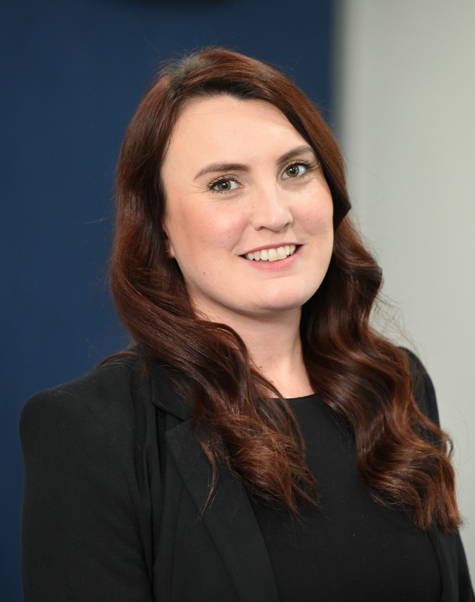



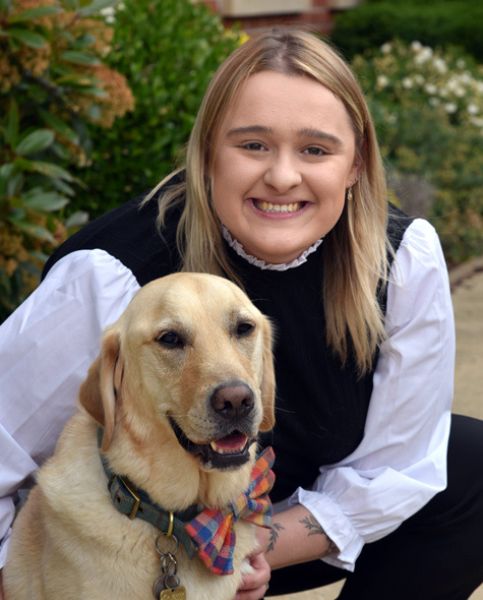







 Blog
Blog

